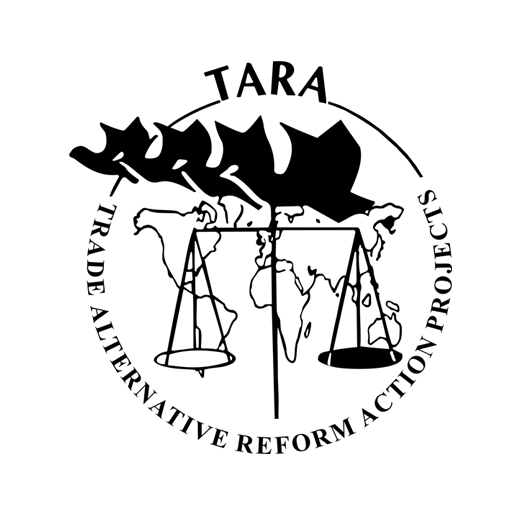AYNIART
Promoting the sustainable know-hows of the isolated peoples of the Andes
Mettre en avant les savoir-faire durables des peuples isolés des Andes
Founded in 2001 by Georgina Davalos and her husband in Cuzco, Ayniart is an association dedicated to supporting artisans from remote villages so that they can reach a clientele that is able to pay them decently. Indeed, the objective of their company is to help these communities, which often do not speak Spanish, to live correctly on a traditional and respectful production of the environment.
Activists since their university years, the Dávalos are used to taking long routes to remote hamlets to reach their partners. The road from the city to the community of Acchahuata is winding, but it pales in comparison to the journeys they used to make, when the infrastructure was even more precarious.
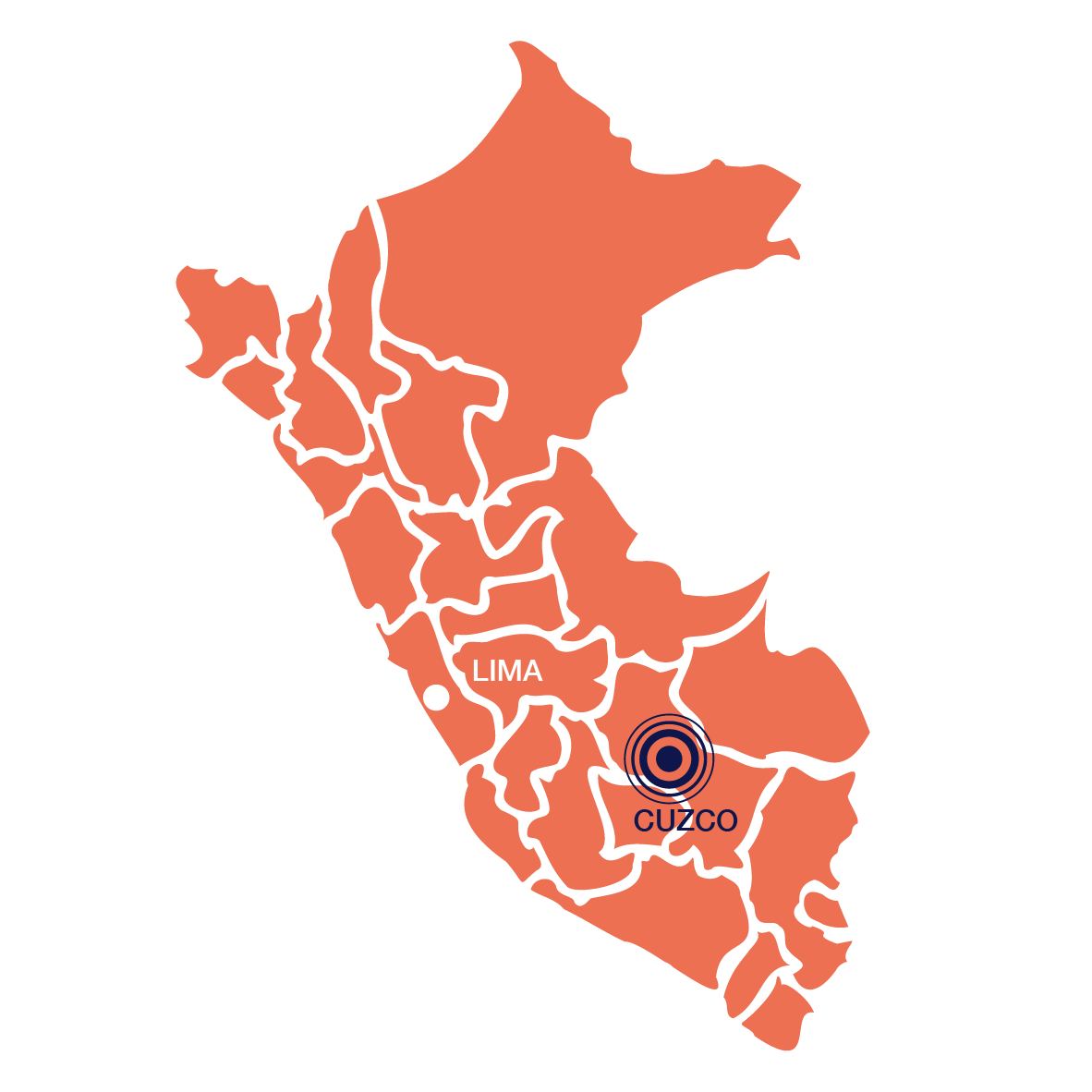
A valley miles away from the city, that is still affected by climate changes
It takes three hours by car, crossing several high altitude passes, and then walking up the side of a mountain at more than 4,000 meters to reach the pastures of their alpacas. These pastures border a valley dotted with a few rare villages. The only trace of industrialization: the ruins of a pipeline supposed to bring natural gas from Camisea to the metropolis.
But this pharaonic construction site, supposed to bring "progress" to this remote valley, has been at a standstill for years. Living in a remote community, the habitants of Acchahuata speak almost exclusively Quechua - language of the Inca empire - and proudly defend their artisanal traditions. However, they live with the difficulty to give a complete schooling to their children as a cruel handicap.
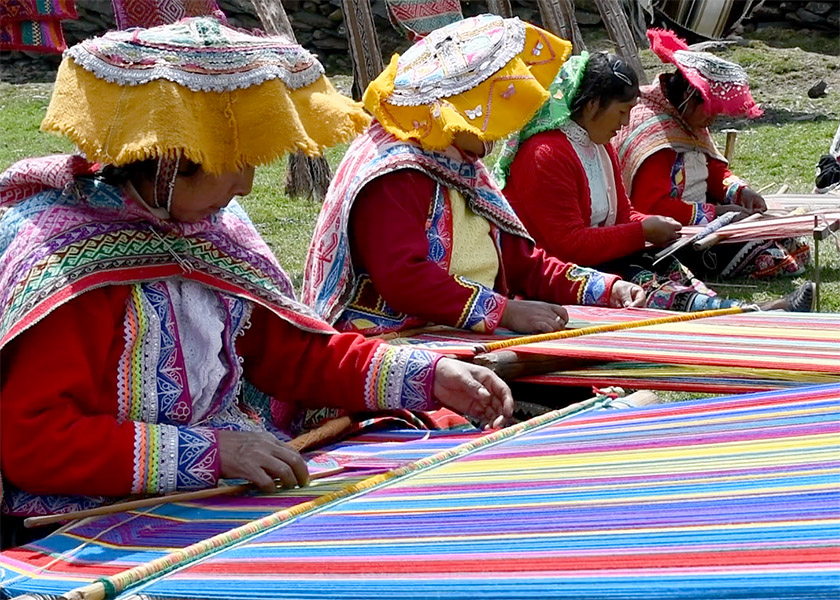
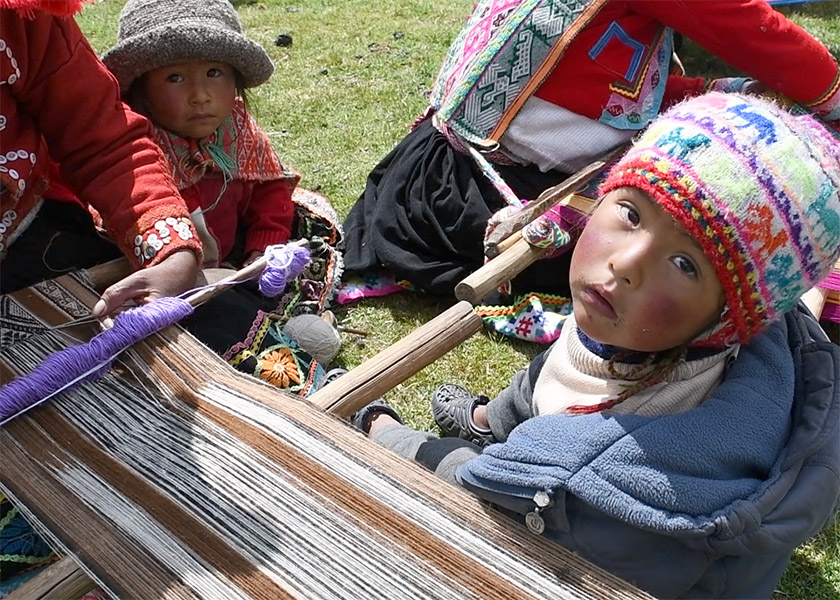
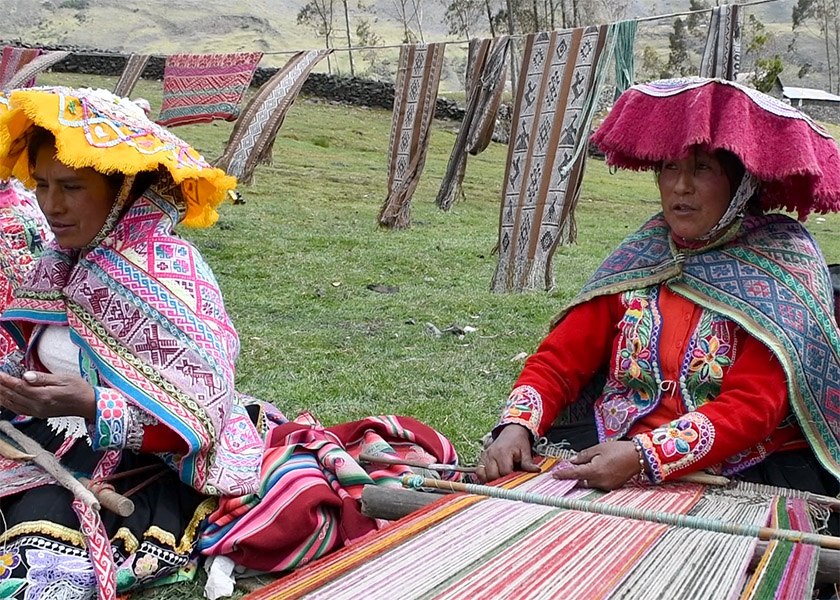
Moreover, this isolation does not shelter them from the problems that affect the world. The craftsmen see the glaciers of their mountains disappearing and their pasture impoverished. Convinced that their production methods do not have a negative impact on their environment, they hope that the sale of their product could be an example to follow, perhaps a vehicle for change. But it is difficult to make oneself heard in Peru when one is not a Spanish speaker. By keeping in touch with them, and by continuing to promote their knowledge, Ayniart hopes to contribute to the revaluation of these populations.
Manuel-Antonio Monteagudo




